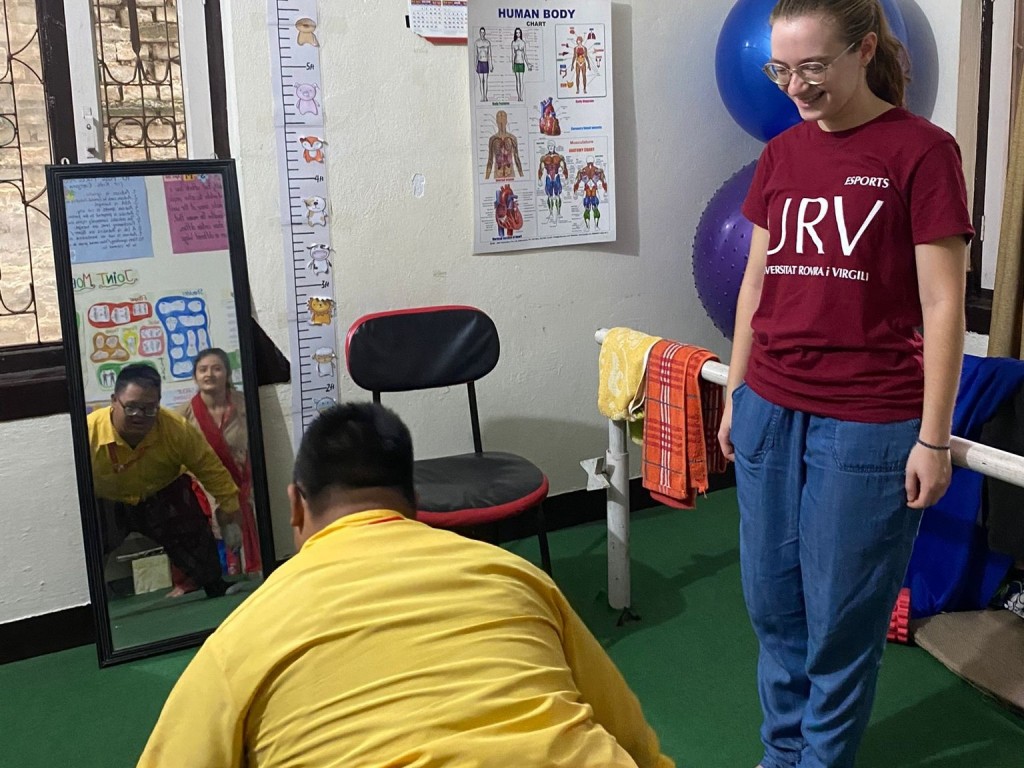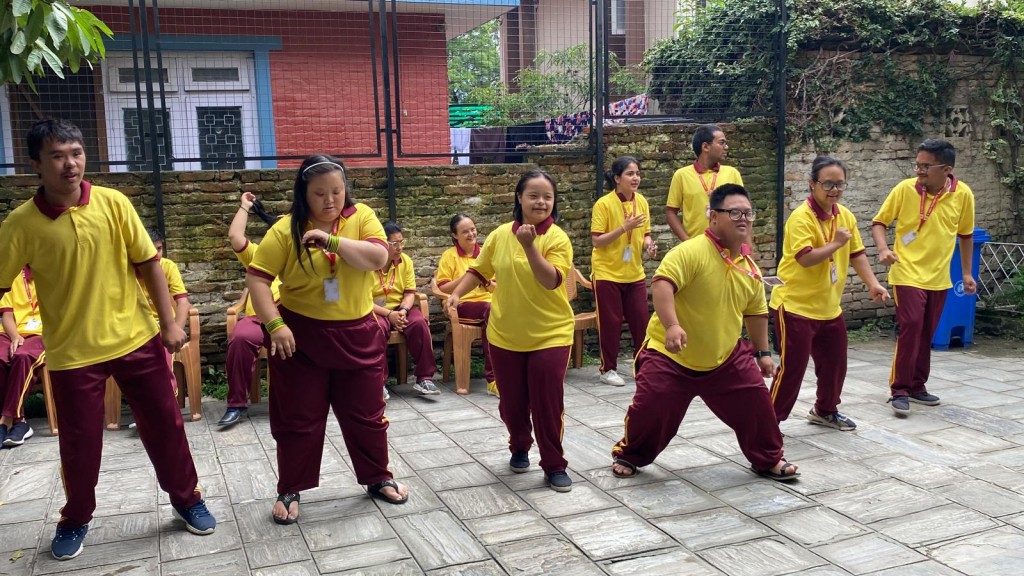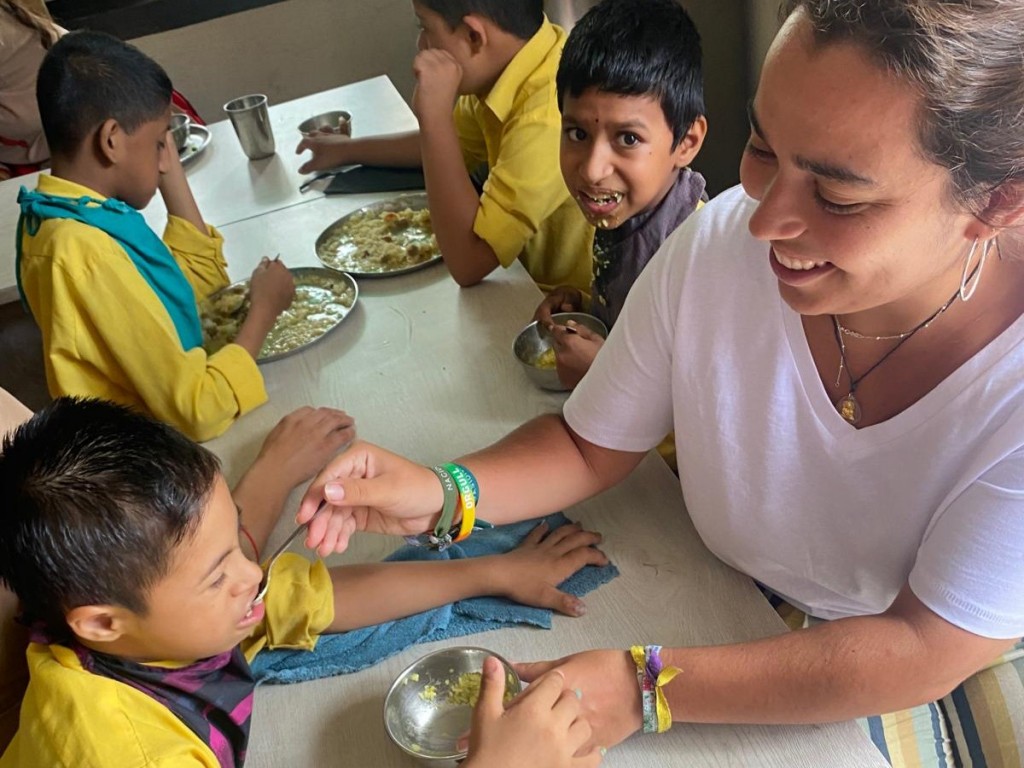Press notes 19/12/2024
More projects to expand the URV’s social work around the world
Grants have been given to six initiatives aimed at promoting development in disadvantaged areas, one such initiative being the work by two physiotherapy students in Nepal.

Grants have been given to six initiatives aimed at promoting development in disadvantaged areas, one such initiative being the work by two physiotherapy students in Nepal.
URV Solidària, the entity that coordinates international development cooperation projects led by members of the university community, has given grants to the six new initiatives that got the highest scores in the latest Cooperation Projects Call. The grants, ranging from 5,000 to 12,000 euros, cover a significant portion of the budget and help pay for initiatives that, in collaboration with NGOs, bring the URV’s expertise and social work to the most disadvantaged areas of the world.
Among the projects that have benefited from the URV Solidària aid, two are related to food. The Department of Basic Medical Sciences, in collaboration with the NGO Nutrition without Borders, is carrying out a project in Gambia to train locals in food preservation and transformation to improve food resilience and security. In Senegal, the Department of Medicine and Surgery is helping with the installation of a pasteurizer to facilitate dairy consumption, especially for children and pregnant women in a livestock region where much of the milk produced is lost due to the lack of agri-food infrastructure.
Promoting literacy among women in Udaipur, India, by combining ICT, job training strategies and entrepreneurship is the goal of a project involving the Department of Public Law. Women, adolescents, and children are particularly vulnerable groups in many regions of the world, which is why they are the focus of other educational and training projects supported by URV Solidària.
For example, the Department of Public Law collaborates on a project for exchanging transformative teaching methodologies to promote inclusive and emotional education for boys and girls in a shelter in Cusco, Peru. In Morocco, the Department of Pedagogy collaborates in the Second Chance-New Generation programme to provide support, guidance, and job placement for adolescents and young people who have left the regular school system. In Tanzania, with the participation of the Department of Business Management, an initiative is underway to offer educational support and community development targeting children in vulnerable situations.

“It helped me grow personally”
These are hands-on social work projects that quickly bear fruit and often serve as significant learning experiences for the volunteers themselves. This is the case for URV Physiotherapy students Vera Peiró and María Albaigès, who recently participated in an international volunteer programme through URV Solidària’s Col·labora initiative. They spent two months in a special education school in Nepal for children with intellectual disabilities, run by the NGO Familia de Hetauda.
Their work primarily consisted of providing theoretical and practical training to local physiotherapists in various areas such as anatomy, respiratory physiotherapy and the musculoskeletal system. For both, the experience was very positive. According to María Albaigès, who wanted to help out in a less-developed country while learning about a new culture and people, her visit opened her eyes and mind: “It made me appreciate the little things in my daily life, and allowed me to discover a society that I wouldn’t have known otherwise, and of which I have grown fond. Above all, it gave me more confidence in myself and helped me grow personally, as I had to do many things on my own and figure things out for myself.”

“I’m braver than I thought”
For María, the best part was interacting with the children at the school, who she describes as “very grateful, full of energy, and eager to enjoy life”, a sentiment echoed by Vera Peiró, who was grateful for all the love given and received, and for learning that despite the differences between people and cultures, we must love and help each other, with all our flaws. “That’s the way to grow and become a better version of ourselves,” she says.
She also admits that there were tough moments, being far from home in a different environment, but overall, she is very happy to have embarked on an adventure in which she sought to overcome a difficult moment in her life and rediscover herself. “This trip made me realize that I am braver than I thought, stronger than I seem, and smarter than I ever imagined.”
